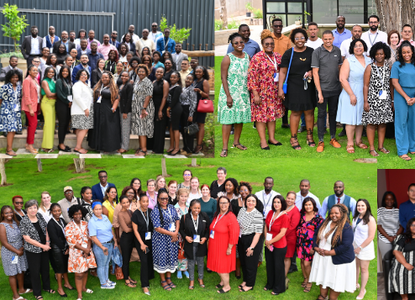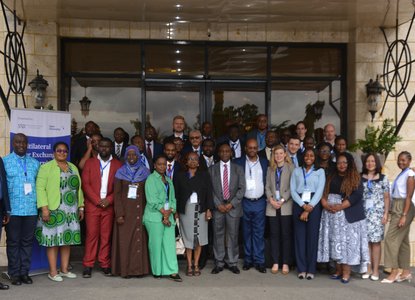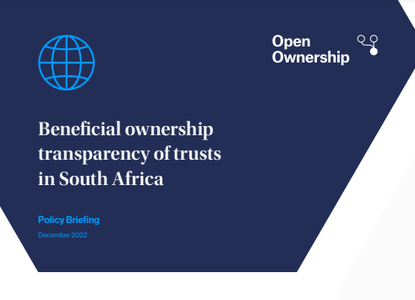Regional training: Advancing anti-corruption in Africa through beneficial ownership transparency
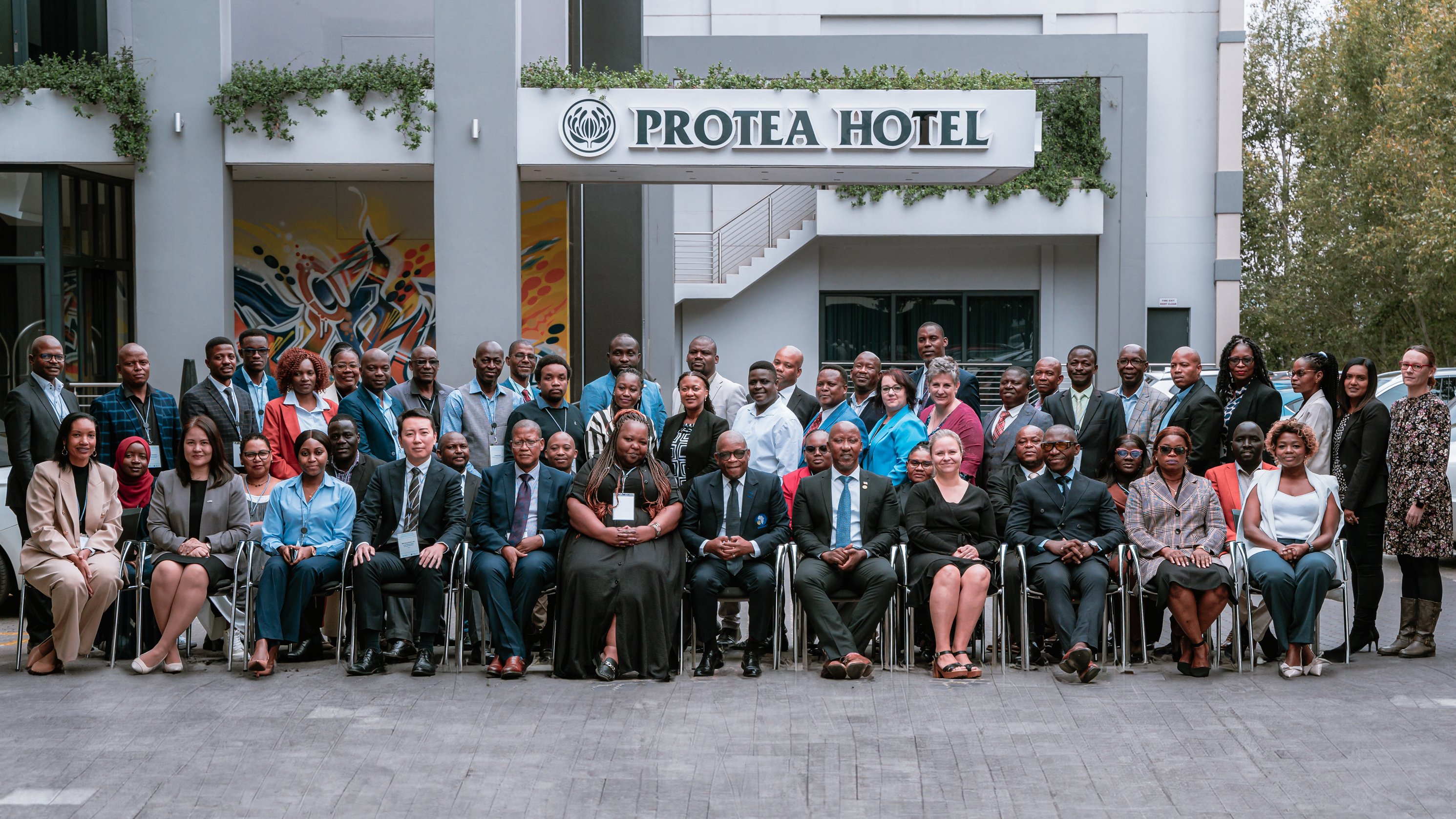
The organising partners gathered 42 representatives from financial intelligence units, anti-corruption agencies, and corporate registries from Southern Africa and West Africa.
In April 2024, representatives from anti-corruption agencies, financial intelligence units, and corporate registries from Botswana, Eswatini, Lesotho, Malawi, Namibia, and Sierra Leone, with observers from Gabon and Togo’s anti-corruption agencies, gathered in Pretoria, South Africa. Open Ownership co-hosted a regional training event on advancing anti-corruption through beneficial ownership transparency (BOT). The four-day training session supported early-stage BOT-implementing countries with peer learning, enhancing participants’ technical capacities for using beneficial ownership (BO) data in financial investigations. It was jointly organised by Open Ownership, the United Nations Office on Drugs and Crime (UNODC), and the Commonwealth Africa Anti-Corruption Centre.
The training was facilitated by technical experts from Open Ownership and the UNODC, and included resource persons from countries that have had significant achievements or are at an advanced stage in BOT implementation, such as Botswana, Kenya, Nigeria, and South Africa.
Day 1: Beneficial ownership transparency implementation and inter-agency coordination
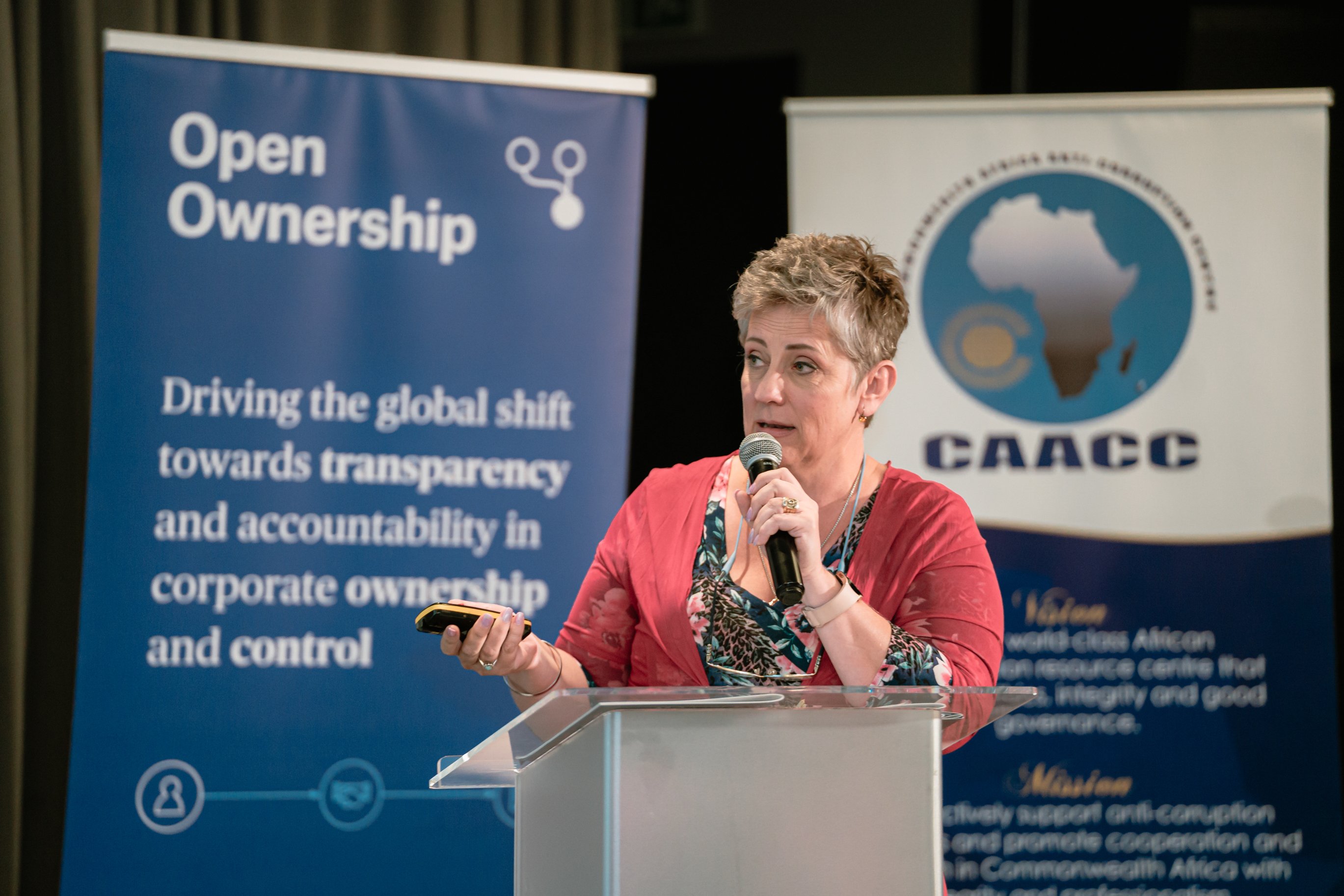
The Office of the Master of the High Court in South Africa shared their experiences of BOT implementation.
The first day of the training event provided foundational knowledge on BOT from technical experts at Open Ownership. Later, parallel sessions, enabled participants to hear from later-stage implementers who shared the highlights of their practical experiences in the implementation of BOT reforms.
- The Botswana Companies and Intellectual Property Authority described the creative mechanisms they employ to improve compliance with BO obligations including the accuracy of BOI.
- The Kenya Ethics and Anti-Corruption Commission highlighted their experience with the use of BO data to unravel sophisticated layering techniques adopted by individuals to hide their illegally-gained money or assets.
- The Corporate Affairs Commission of Nigeria shared insights and best practices from their journey to launching Africa’s first free, public and full-economy BO register, and mechanisms they adopt to improve data quality and enable data integration and use.
- A panel of representatives from key implementing agencies in South Africa presented their experiences of implementing BO registers for companies and trusts in response to the country’s Financial Action Task Force Mutual Evaluation Report recommendations, and subsequent greylisting.
These sessions provided a platform for interactive discussions on key aspects of implementation, such as driving compliance, data usage, and the process for building BO registers. The sessions also considered the value of coordination between agencies, and the importance of political will, in driving reforms.
“It’s important for our institution to be a participant in these types of events, because not only is it a platform to share and exchange information, as well as initiatives that other countries are embarking on, on the ground, but it’s also an opportune moment for us to establish strategic partnerships with corporate registries from other countries, and an opportunity to promote inter-agency cooperation.” – Pego Aisam, Board Secretary and Legal Advisor, Companies and Intellectual Property Authority, Botswana
Day 2: Financial investigations and the use of beneficial ownership data
The second day, facilitated by UNODC experts, emphasised enhancing the effectiveness of BOT through multi-agency collaboration and using BO data with other data sets in financial investigations, as well as asset tracing and recovery. Through the sharing of real-life case studies from Bangladesh, China, and Kenya, participants learned about techniques for investigation, including the integration of technology such as artificial intelligence. They learned how maintaining rigorous international cooperation is vital for tracing illicit funds and identifying beneficial owners.
“The case studies that were shared gave me a better understanding of beneficial ownership and how to follow money when conducting investigations.” – Event participant
Open Ownership led a parallel help-desk session with representatives from corporate registries and the South African Master’s Office to tackle core issues of implementation. In this session, participants delved deeper into issues such as drafting effective legislation for BOT, verification, and sanctions. The second day finished with a presentation on the importance of collaboration not just among governments but also within the private sector. This presentation underscored the fact that the effectiveness of financial investigations heavily relies on robust inter-agency and international cooperation. Sharing goals, information, and strategies among stakeholders is crucial for successful outcomes.
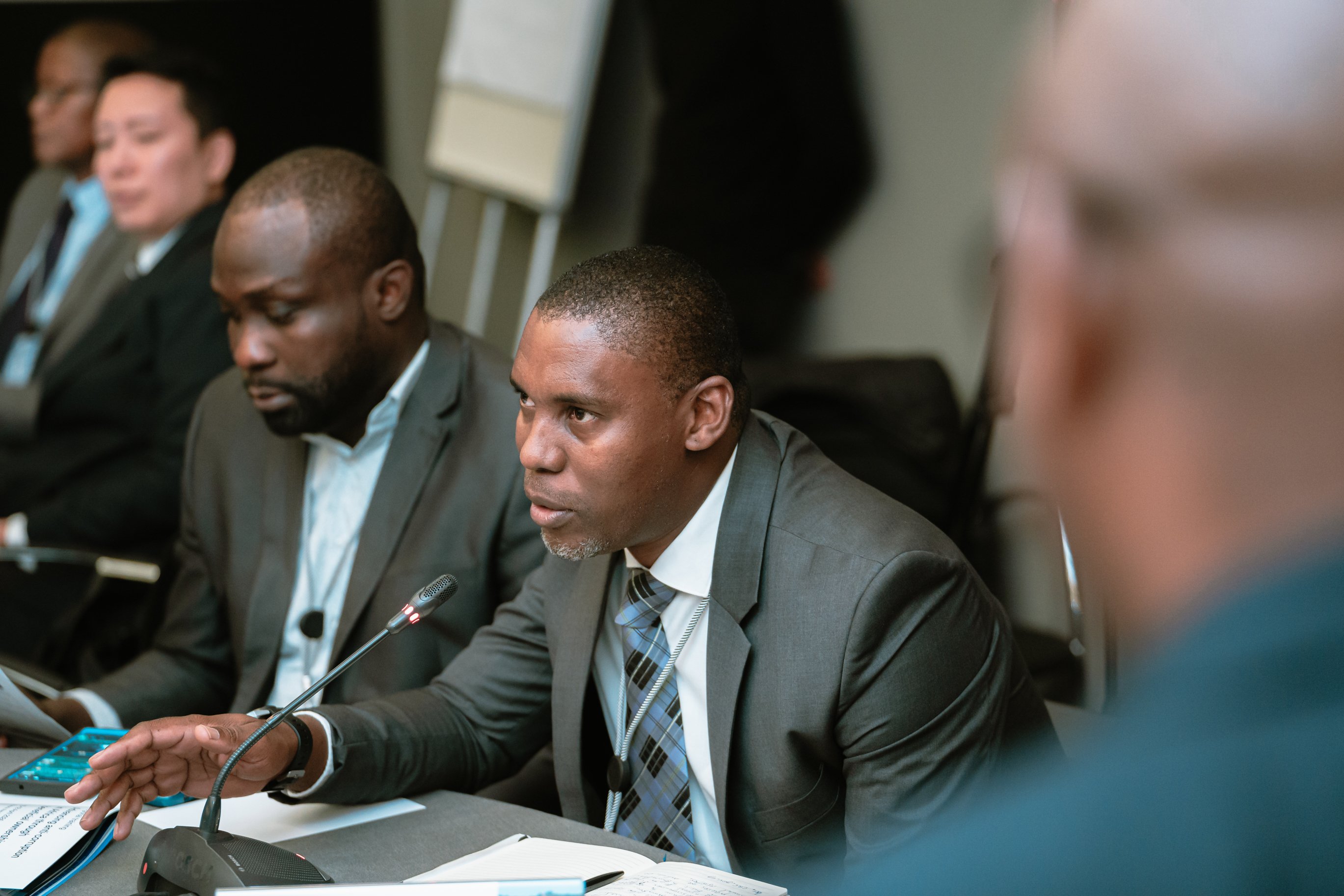
Representatives from Sierra Leone and South Africa engaged in discussions during the session on financial investigations and BO data use.
“Participating in this workshop enables you to apply some of the learning when you’re back in the office. There’s always room for improvement and great opportunities to collaborate with other stakeholders. So that for me is excellent.” – Rehelda Williams, Companies and Intellectual Property Commission, South Africa
Day 3: Study visits
The training agenda also featured an opportunity for the representatives to attend study visits at the Special Investigations Unit, the Companies and Intellectual Property Commission (CIPC), the Johannesburg Stock Exchange (JSE), Africa’s largest stock exchange, as well as Strate – South Africa’s central security depository.
The study visit to the Special Investigations Unit provided participants with insights into the complex realm of BOT and the fight against corruption and illicit financial flows, and the SIUs collaboration with other law enforcement agencies and the CIPC. Participants learned about the SIUs use of civil litigation and disciplinary actions, and received recommendations for managing risks related to service providers.
At the CIPC, participants were provided with an overview of CIPC’s journey to digitising its corporate records and services, and establishing systems for the collection, verification and sharing of beneficial ownership information, as well as engaging clients and working with regional offices. Participants engaged with several departments of the CIPC, such as the Department of Disqualified Persons, the Call Centre, the Sanctions and Enforcement Unit, and the Corporate Education Team, to better understand how they operate and their respective roles in advancing implementation of BOT.
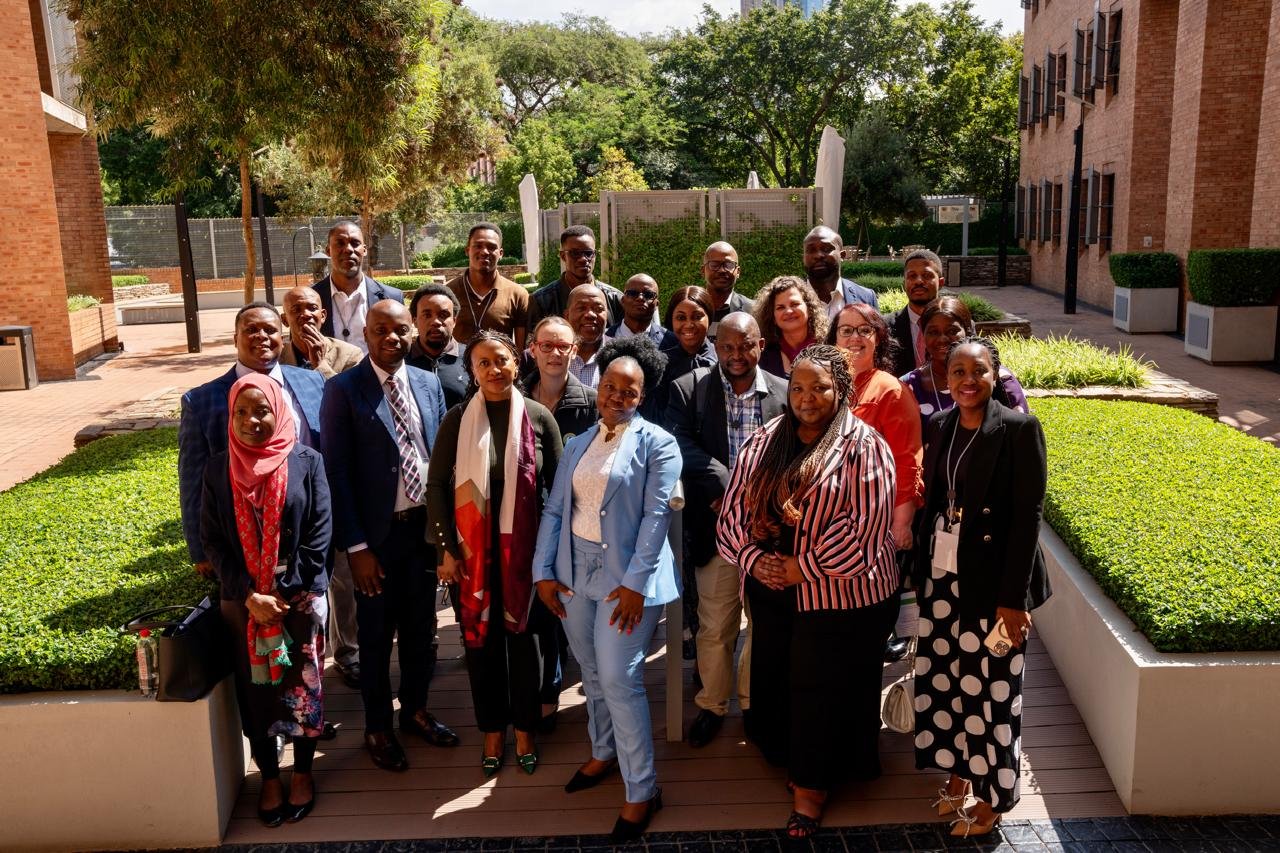
Participants were warmly welcomed at the study visit to the CIPC. Photo: CIPC
The CIPC shared information on existing Memorandum of Understandings (MoUs) with corporate registries in Zambia and Lesotho. They also outlined plans underway to establish a data-sharing MoU with Namibia’s corporate registry to facilitate the cross-border exchange of data, including BO data.
The exchanges at the JSE and Strate provided participants with insight into the complexities of including listed companies within the broader beneficial ownership framework, as well as some emerging policy, regulatory, and technological solutions in South Africa.
“The site visit to CIPC, JSE, and Strate was a practical and engaging moment.” – Event participant
Day 4: Roadmap development
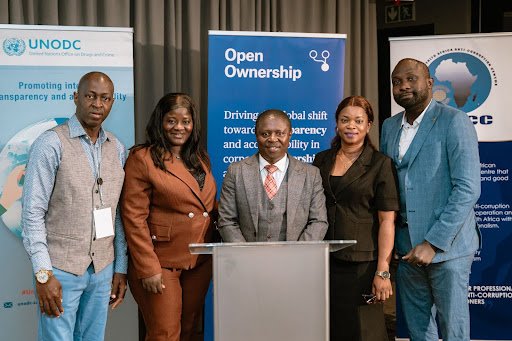
The final day focused on developing actionable roadmaps for countries to advance their BOT reforms, and representatives from each country presented their key next steps. These included the following country-specific highlights:
- Botswana emphasised the need for ongoing legislative reviews and establishing an inter-departmental working group;
- Eswatini indicated their interest in developing a BO register and initiating inter-agency cooperation to advance the implementation of BO reforms;
- Lesotho highlighted the need to start with policy approval and legislative drafting;
- Malawi highlighted the need to enhance existing legal frameworks and systems for the disclosure of BOT;
- Namibia prioritised enhancing system integration and continuous awareness-raising;
- Sierra Leone stressed the importance of legislative reviews and capacity-building;
- Togo and Gabon as observers at the training and new to the concept of BOT, aim to garner political will through awareness raising and advocacy, followed by legislative amendments, capacity strengthening and enforcement.
“As Open Ownership, this is how we continue to offer technical assistance to countries – in Africa and beyond – on the implementation of BOT, and our expectations for these countries is to go back home, look at their implementation regimes, and identify areas for improvement.” – Favour Ime, Open Ownership Senior Regional Manager for Africa
To maintain momentum, action items were identified, including sharing best practices, legislative guidance, and sanctions briefings, as well as conducting further virtual sessions on sanctions, data access, and systems development. Open Ownership is dedicated to continuing to support these countries and creating valuable opportunities for stakeholders to network and adopt a concerted approach to effective BOT reform.
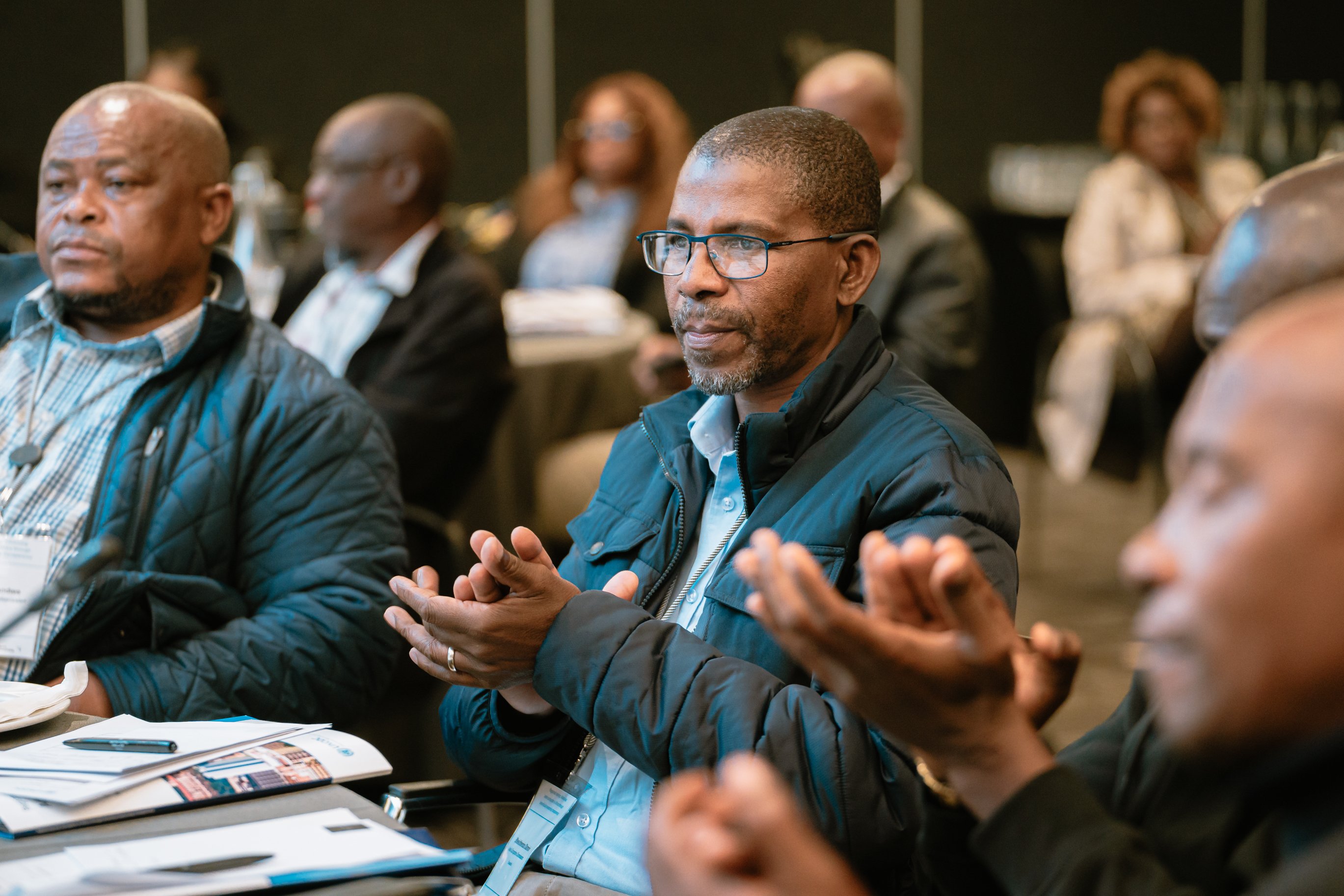
Related articles and publications
Publication type
Blog post
Country focus
Namibia,
Republic of South Africa,
Togo,
Sierra Leone,
Gabon,
Malawi,
Lesotho,
Botswana,
Eswatini
Sections
Implementation
